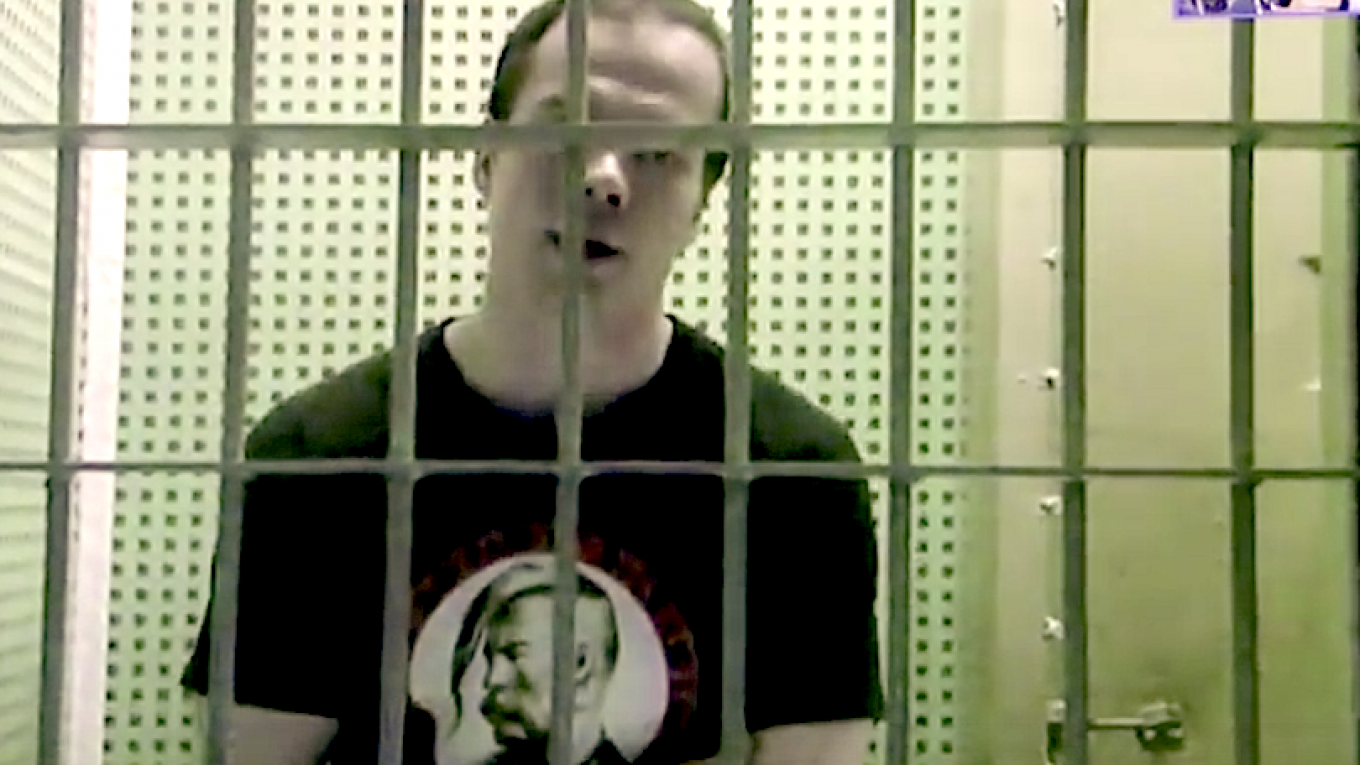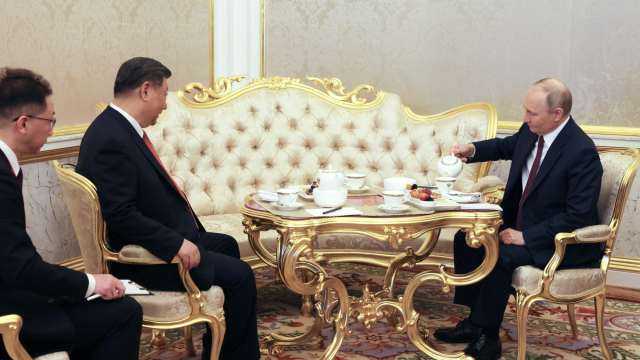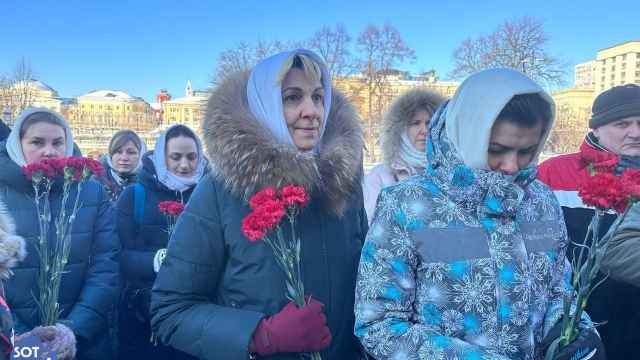Ildar Dadin has become a symbol of the Russian prison system's cruelty.
In December 2015, the opposition activist became the first Russian to be convicted under Article 212.1. The controversial law, approved by Putin in 2014, effectively bans all forms of public dissent that have not been sanctioned by Russian authorities.
Dadin participated in five rallies held between August 2014 and January 2015. For this, he was sentenced under the new laws to 2.5 years in an Arctic prison colony.
But Dadin's treatment in prison has shocked Russia. In November 2016, his wife received a letter smuggled out of the Karelian prison by his lawyer.
In the letter addressed to his wife, Dadin describes the forms of torture he says he endured inside the labour camp. He alleges he was hung by his handcuffed wrists, threatened with rape and death, and beaten by a dozen guards at once.
“I am not afraid of dying,” he wrote to his wife. “I'm most afraid of not being able to tolerate the torture.”
Surprisingly, the story of Dadin's case was picked up by state-controlled media. Spontaneous protests erupted outside the Justice Ministry in Moscow. The Kremlin was forced to comment on the case.
Soon, other prisoners had confirmed Dadin's torture.
The prison service denied wrongdoing but with pressure mounting both outside and within Russia, authorities were forced to act.
Russia's prison right's commissioner traveled to Karelia and posted a picture on Instagram with Dadin (the activist’s supporters were suspicious because Dadin’s face was not visible in the photograph).
Shortly after the meeting, Dadin was transferred to another prison colony in Russia's Far East.
His lawyer appealed to Russia's Constitutional Court to review the legality of his initial arrest. In his review application, Dadin asked the Moscow court to recognize that the law which sent him to jail violated his right to public assembly, as guaranteed by the Russian Constitution.
Unexpectedly, there was good news.
On Friday, the court ruled that Dadin's verdict was enforced with violations and that it should be reviewed. His lawyer says he now expects the case against Dadin to be overturned when it is reviewed by the Supreme Court.
But the court also ruled that the controversial Article 212.1 is constitutionally legal and should remain in place. Under the law, Russians who violate protest rules at least three times within 180 days can be fined up to 1 million rubles or sent to prison for up to five years. According to the prosecutor, the right to hold peaceful protests as guaranteed by the constitution cannot be absolute.
The court also found that the law should be amended, ruling that a person should only be convicted with this law if he "poses a threat to the public" and if the protest is disorderly. It is unclear, what a person has to do in order to be exempted from the law.
While today’s outcome was positive for the activist's family, the number of Dadins in Russia is likely to grow.
A Message from The Moscow Times:
Dear readers,
We are facing unprecedented challenges. Russia's Prosecutor General's Office has designated The Moscow Times as an "undesirable" organization, criminalizing our work and putting our staff at risk of prosecution. This follows our earlier unjust labeling as a "foreign agent."
These actions are direct attempts to silence independent journalism in Russia. The authorities claim our work "discredits the decisions of the Russian leadership." We see things differently: we strive to provide accurate, unbiased reporting on Russia.
We, the journalists of The Moscow Times, refuse to be silenced. But to continue our work, we need your help.
Your support, no matter how small, makes a world of difference. If you can, please support us monthly starting from just $2. It's quick to set up, and every contribution makes a significant impact.
By supporting The Moscow Times, you're defending open, independent journalism in the face of repression. Thank you for standing with us.
Remind me later.






